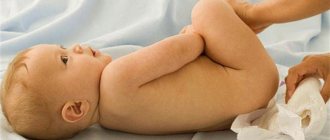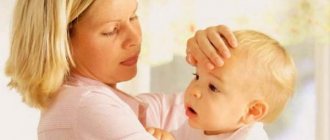The article was prepared by a specialist for informational purposes only. We urge you not to self-medicate. When the first symptoms appear, consult a doctor.
Pregnancy is a normal physiological state of the female body. But pregnant women are more sensitive to negative environmental factors, which makes them susceptible to many diseases. That is why it is so important to protect expectant mothers from any pathological abnormalities. After all, this concludes the responsibility for two lives - mother and child. One of the common problems that a woman may face during pregnancy is diarrhea.
Diarrhea during pregnancy is a dysfunction of the intestines in women that occurs in response to the progression of pregnancy or the irritating effect of external factors, and is manifested by an increase in the frequency of stools with changes in the nature of stool. In order to avoid misunderstanding when considering this problem, it is worth clarifying that diarrhea and diarrhea are the same disease.
In any healthy person, regardless of gender and age, the appearance of diarrhea is a pathology. During pregnancy, the situation is a little different, since loose stools may be part of the natural course of pregnancy at certain times. Diarrhea can also occur secondarily, being a symptom of certain diseases or pathological processes. This means that pregnant women need to be able to clearly and correctly differentiate between normal and disease, which affects the tactics of pregnancy management and eliminating the problem.
Typically, pregnancy is characterized by the occurrence of deviations in stool towards the appearance of constipation. But in some women, due to the peculiarities of the anatomical relative position of the enlarged uterus and intra-abdominal structures, they press on each other.
This is most evident when the uterus enlarges to the level of the navel, which corresponds to 17-23 weeks of pregnancy. It is during this period that most women notice the appearance of diarrhea. In another part of pregnant women, diarrhea appears at the very beginning of the gestational period and in the prenatal period.
The data presented indicate that the intra-abdominal nerves of the solar and other plexuses react very strongly to compression or displacement of the intestinal loops by the dramatically changed uterus. As a result, increased peristalsis and diarrhea. But the most important thing is that the problem is short-term in nature, since the body gradually adapts to new conditions, and everything is perceived as the norm.
Among the causes of diarrhea due to pathological influences are:
- Errors in diet;
- taking medications: magnesium, vitamin B6, folic acid, multivitamin complexes;
- Irritable bowel syndrome;
- Acute intestinal infections;
- Gastroenterocolitis;
- Gastric and intestinal dyspepsia;
- Exacerbation of chronic pancreatitis;
Whatever the origin of diarrhea, it must be dealt with. After all, any deviation from the norm is fraught with danger. The scope of measures depends on the characteristics of diarrhea: duration, intensity and nature.
Diarrhea during pregnancy
Vomiting in the early stages of pregnancy is a sign of toxicosis
Diarrhea in the first weeks of pregnancy indicates the body's reaction to the changes that occur with the onset of pregnancy. This does not mean that this disease does not need to be treated. During the period of diarrhea, microelements and valuable vitamins are washed out of the body of the expectant mother.
The condition and development of the baby directly depends on the nutritional status of the expectant mother. To treat diarrhea in early pregnancy, you can prepare a drink with added salt, sugar and activated charcoal.
If diarrhea occurs in late pregnancy - from 28 to 39 weeks - this is a sign of the development of a pathological process, or a sign of the onset of labor. In the absence of nausea and vomiting, and there is no increase in temperature, this is a direct sign of the onset of labor. The body thus cleanses itself before childbirth.
Nausea, vomiting and fever may indicate poisoning or an intestinal infection.
Diarrhea in early pregnancy
One of the most common periods of pregnancy during which physiological diarrhea occurs is the early stages (first trimester). The culprits may be the woman’s own hormones, which support pregnancy and the growth of the fertilized egg, as well as foreign components of the fetus during its intensive growth and development. In this way, like diarrhea, the body tries to throw out substances that are unusual for a pregnant woman. The natural route for their elimination is usually the gastrointestinal tract, which begins to work in enhanced mode.
A feature of diarrhea in early pregnancy is its high frequency with a high risk of dehydration due to concomitant vomiting.
Against the background of toxicosis, appetite sharply decreases, any desire to eat or drink anything disappears, so as not to provoke the resumption of unpleasant symptoms. This is a typical scenario for complications of early toxicosis, accompanied by diarrhea. Therefore, if diarrhea persists, it is important to consult a specialist in a timely manner.
Why does diarrhea occur?
Vomiting and diarrhea during pregnancy is a reason to consult a doctor
Causes of diarrhea:
- Consumption of low-quality or stale products;
- Disturbance in the functioning of the nervous system;
- Development of intestinal infections;
- The onset of labor.
What are the causes of diarrhea during pregnancy? As a rule, at the beginning of pregnancy the hormonal background in the body of the mother changes. “Hormonal changes” in most cases cause constipation. An exception is the period of the first and last weeks of pregnancy - at the beginning this may indicate fertilization of the egg, at the end - the beginning of labor.
If, along with diarrhea, nausea, vomiting, abdominal pain and fever are diagnosed, then this is evidence of an intestinal infection. This condition poses a danger to the woman and the unborn child, so it is necessary to seek medical help.
The most common causes of diarrhea are irritation of the colon - “bear disease”, intestinal infection or toxification, that is, food poisoning.
What happens to the baby at the twenty-sixth week of pregnancy
The baby continues to develop and grow, his weight has already reached 900 g, and his height is 34 cm. During this period, the baby will be able to survive if he decides to be born prematurely. In the second trimester, all the organs of the little man are practically formed. The intensity of the little one's movements and the force of his kicks are becoming stronger, and the mother may feel uncomfortable and painful. The baby has a lot of space, which allows him to tumble and move actively. Although it is already fully formed, the body is still small and thin. Basically, a baby gains weight by accumulating fat and due to muscle growth. The baby is able to distinguish the taste of amniotic fluid, which changes in accordance with what the mother ate. Lung tissue is now being actively formed; it plays an important role in the respiratory system of a small organism. Within a week, the baby’s reproductive system effectively develops; in boys, the testicles begin to move into the scrotum, and in girls, the genitals and vagina are formed. The baby can already clearly distinguish the voices of his relatives, recognizes his mother’s voice, familiar sounds. Therefore, now you can sing lullabies to him. The baby hears the mother's heartbeat and after birth will be able to fall asleep better if he is placed to the breast. The baby can already distinguish between light and dark, and his eyeballs continue to form.
Food poisoning
Vomiting and diarrhea during pregnancy may indicate the onset of labor
Signs of food poisoning appear very quickly. Nausea, vomiting, diarrhea are the main symptoms of food poisoning. Flatulence and fever can also accompany poisoning.
Intoxication of the whole body occurs, which is accompanied by weakness, chills, and headache. Even fainting may occur due to a decrease in blood pressure.
Food poisoning is accompanied by dehydration and can be very dangerous as it causes blood to thicken. This condition can provoke thrombosis and varicose veins, and the threat of miscarriage.
Food poisoning is especially dangerous during the period of 36-39 weeks, since the woman’s body is weakened and it is not easy for the immune system to cope with the negative load. Usually only the pregnant woman suffers from the manifestations of food poisoning; the child practically does not feel this condition.
Only in case of dehydration is the child's health at risk, since this condition reduces blood circulation. This in turn leads to a lack of nutrition through the placenta and the production of the corresponding hormone, which can provoke the threat of miscarriage. Therefore, food poisoning must first be treated by replenishing the lost fluid in the mother’s body.
Baby at twenty-fifth week
This week the baby is mainly in a head down position. Even if this does not happen, there will still be time to change the situation. The baby's body length reaches 32 cm, weight - about 750 g. The face is almost formed and you can clearly see the cheeks, nose, lips, eyebrows and eyelids. During this period, the baby's weight gain will be faster than his growth in length. The mother will even be able to feel the baby hiccupping. There is no need to worry about this, but you need to tell the doctor. The baby is actively moving night and day, his lungs have completed the process of formation, although they are not yet ready to fully function. The skin on the body is already brightening and straightening. Now the skeletal system is actively strengthening, so mother needs to consume more foods containing calcium. Subcutaneous fat continues to accumulate, and this causes the formation of folds on the legs, arms and buttocks. This week is very interesting because the baby can already clench his fists and play with his fingers, and right now it is determined whether he will be right-handed or left-handed. You can also track during what periods the baby sleeps and when he is awake.
Intestinal infection
Vomiting and diarrhea during pregnancy are dangerous due to dehydration
The presence of diarrhea due to an intestinal infection practically does not pose a threat to the child, since the causative agent of the disease affects the woman’s intestines. The most negative symptom is dehydration and the inability to take popular medications.
In such cases, intestinal infections should be treated with “gentle” antibiotics that do not have a negative impact on the baby’s development. The main symptoms of an intestinal infection are nausea, diarrhea and vomiting.
What happens to the mother at the twenty-sixth week of pregnancy
The already significantly enlarged tummy begins to restrict breathing (you want to take a deep breath), shortness of breath may appear. This week, the mother's total weight may increase by approximately nine kilograms. It is more difficult for the expectant mother to walk; a bandage, comfortable clothes and shoes will help alleviate the condition. Now it is important for a woman to spend a lot of time outdoors, increasing the number or time of walks. The mother's visual acuity may also decrease, but this is a temporary phenomenon. The fundus of the uterus rises to a distance of 26 cm from the pubis. The uterus grows approximately 1 cm per week, putting pressure on other organs. This week, mom can attend special sports sections and provide herself with moderate physical activity. It is not recommended to stay in a sitting or lying position for a long time.
Women are now concerned about the appearance of age spots on the skin. There are no effective remedies against this; mom needs to be patient and just wait. After childbirth, the skin condition returns to normal. Training contractions may appear this week; they are not dangerous, but if they occur, you should notify your doctor. It is very important for an expectant mother to protect herself from stress; the support and care of loved ones can help with this. For a woman, home-cooked food is preferable; it is important to split portions and eat food often and in small quantities. This will help reduce the discomfort from heartburn and nausea that are possible this week. The process is completely natural; the enlarged uterus puts pressure on the organs of the digestive system and displaces them.
What does the expectant mother feel at the twenty-seventh week of pregnancy?
Things are getting a little more difficult for mom this week. The baby's activity may cause pain. A woman’s mood often changes, and during this period the support and care of loved ones is especially important. Mom may have experiences and fears that should not be kept silent; it is better to share them with her husband or friends. On the physiological side, swelling, dizziness and increased weather sensitivity may occur. Stretching skin on the tummy often begins to itch, and a special cream can help in this case. During this period, a woman’s uterus is located at a distance of approximately 28 cm from the pubis. The mother continues to gain weight due to an increase in the amount of amniotic fluid, the weight of the placenta and the baby. Under the weight of the belly, a woman’s posture may change, lower back pain and excessive sweating may appear. It is better for a woman to rest lying on her side; sleeping on her back should be minimized. Swimming lessons in the pool would be ideal for mom and baby. Due to the fact that the baby’s endocrine system begins to work independently, changing hormonal levels, the mother’s well-being improves. This week, cramps may appear, you should not be afraid of this, the phenomena will pass after childbirth. Changes in body position, a special cream, and light massage of this area will help minimize discomfort.
Changes in mom at twenty-eight weeks
Mom's weight gain this week reaches approximately 10 kg, the uterus rises 28 cm from the pubis. Now it is very important to take care of yourself, avoid falls and not overwork. Mom feels the baby’s movements very well, because he has grown significantly and began to take up more space in the woman’s tummy. The movements have become much stronger, and the tremors are now more painful. The baby spends more time awake, and the period of his activity has also increased significantly. The condition of the mother now significantly affects the condition of the baby. If mom is nervous, the baby will also be restless. Also, a lot depends on the mother’s diet: eating sweets will give the baby energy and make him active. The woman also experiences increased pain in the lower back, back and legs, she is more likely to get tired and suffer from shortness of breath. It is important to choose a comfortable position for sleep, and this is becoming increasingly difficult to do. Mom is becoming less and less agile, her thought processes are slowing down. This week there is a threat of miscarriage; a woman’s blood pressure may also increase and, as a result, her health may worsen. It is important for mom to eat a variety of foods: it should be divided into small portions that should be consumed frequently. Since the baby is actively growing, he needs more and more space; if the mother’s stomach and intestines are full, the baby will not like it. A woman experiences training contractions, her stomach may pull, and pain in the lower back intensifies. In this case, it is also recommended to wear a bandage and rest more.
Baby at twenty-eight weeks
This week the baby already reaches 1,200 g, and his height is 35 cm. The baby’s body takes on a more rounded shape, the folds are smoothed out, and he becomes more and more like a newborn. Tiny tufts of hair gradually begin to fall out, remaining in the area of the shoulders, back and lower back. The hairs on the head, eyebrows and eyelashes gradually darken, and you can already guess what color they will be after birth. The baby can distinguish sounds and voices better and better; at this time, you can play lullabies so that he begins to get used to them. The baby is already beginning to blink his eyes and open his eyelids a little. The weight of the brain increases, and grooves appear on its surface. More and more, the baby begins to distinguish the taste of foods. Mom’s preferences in tastes and smells will be passed on to the baby, since from this period he begins to get used to what mom loves and eats. The baby's skeleton has almost formed, but the bones remain soft, and they will continue to harden even after the baby is born.
This week is also important for the formation of the baby’s psyche and character. It may happen that the baby will be more active at night than during the day. Don't worry, during the day when mom walks, the baby rocks in her tummy and falls asleep. Therefore, its activity at night is quite understandable.









